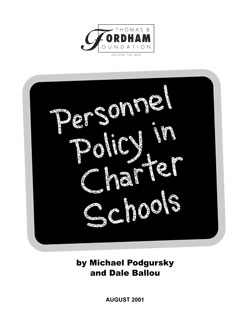Autonomy and Innovation: How Do Massachusetts Charter School Principals Use Their Freedom?
Charter schools grant significant autonomy to their principals, but do their principals make decisions that would not be possible in ordinary schools? Are they creating schools that are truly different from (and potentially better than) regular district schools? For this report, Bill Triant conducted extended interviews with eight charter school principals in Massachusetts on five dimensions of school operations (teacher hiring, budgetary control, instruction and curriculum, organizational design, and accountability) to shed light on how they use their autonomy. He finds that when charter school principals are given the opportunity to innovate, they do so.

